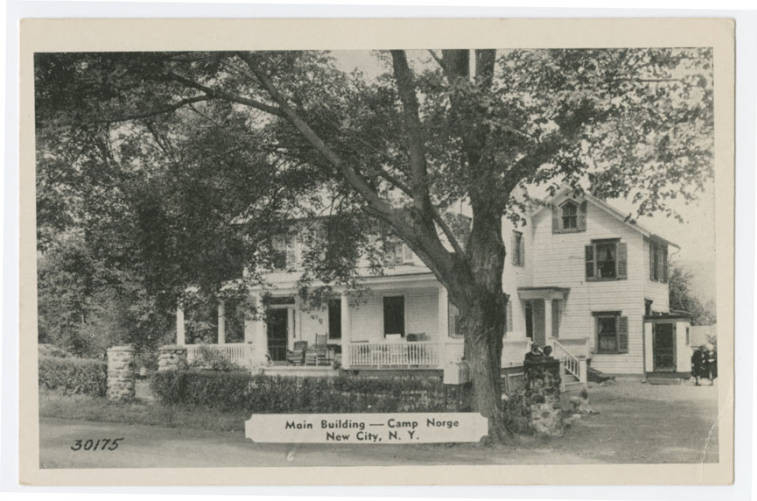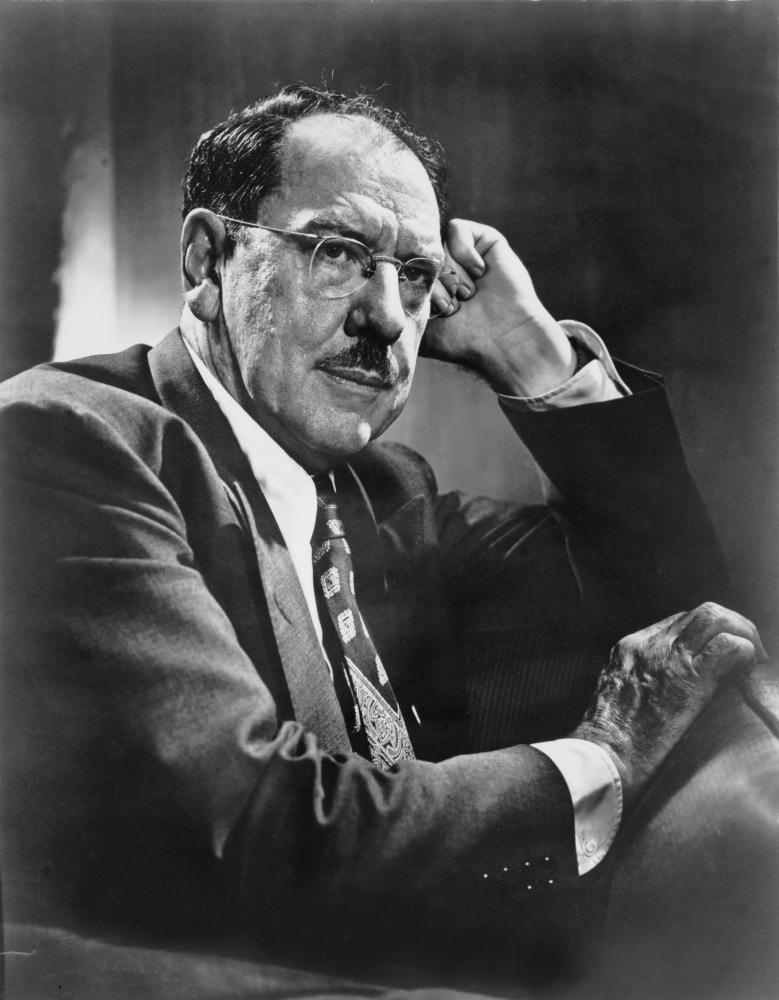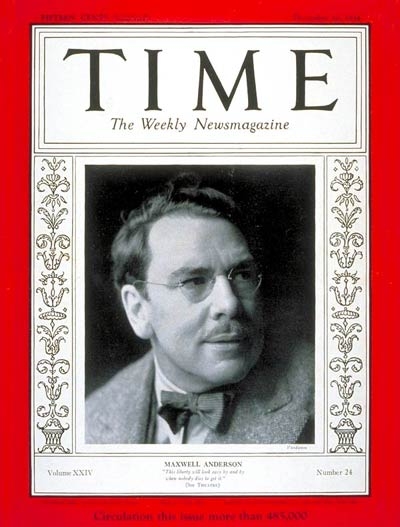Maxwell Anderson
Date of Birth 15 December 1888, Atlantic, Pennsylvania, USA
Date of Death 28 February 1959, Stamford, Connecticut, USA (stroke)
James Maxwell Anderson was born in Atlantic, Pennsylvania, on December 15, 1888 to William Lincoln Anderson and Charlotte Perrimela (Stephenson) Anderson. The second child born to the couple, Anderson spent his formative years on his maternal grandmother's farm in Atlantic before the family moved to Andover, Ohio when he was three years old. His father attended a seminary at night to study for the ministry while he supported the family as a railroad fireman.
After graduating from Jamestown High School, Anderson went to the University of North Dakota in 1908. He worked his way through college as a waiter and serving on the night copy desk of the newspaper "The Grand Forks Herald." He was a member of the literary society Ad Altiora at UND and helped put together the "Dacotah" Annual. He also participated in college theatrics, serving as assistant director for the Sock and Buskin Dramatic Society.
Graduating with a Bachelor of Arts degree in English Literature in June 1911, Anderson married his UND classmate Margaret Haskett, a farmer's daughter, on August 1, 1911. They eventually had three sons, Quentin, Alan, and Terence.
His first job after college was serving as the principal of the Minnewaukan, North Dakota high school, where he doubled as an English teacher. After making pacifist comments to his students, his contract was not renewed, and he moved to Palo Alto, California, where he enrolled in a master's program in English Lit at Stanford University. After graduating from Stanford in 1914, he spent three years as a high school English teacher in San Francisco before accepting an offer to become chairman of Whittier College's English Department in 1917. Once again he got in trouble with his pro-pacifist statements, and he was fired after his first year for speaking out publicly on behalf of a student seeking conscientious objector status during World War I.
Moving back to San Francisco, he worked as a journalist on the "San Francisco Chronicle" and the "San Francisco Bulletin," then moved to New York City to take an editorial position on the liberal periodical "The New Republic." He continued his work as a newspaperman, becoming a stringer for the "New York Globe" and the New York World." He also found time to help launch the poetry magazine "Measure."
Laurence Stallings chose Maxwell as his collaborator on his World War One play "What Price Glory?" Opening on September 3, 1924, the play was one of the stage sensations of the decade, earning kudos and running for 430 performances. The financial rewards of helping create such a big boffo box office blockbuster enabled Anderson to retire from journalism and become a full-time dramatist.
Many of his plays were written in verse, and they typically touch on social and moral problems, such as "Winterset" (1935), which addressed the Sacco & Vanzetti trials in fictional form. The play, which won the first New York Critics Circle Award, is about a gangster who visits the children of the anarchists executed for the murder he himself committed. Anderson won the 1933 Pulitzer Prize for Drama for his play "Both Your Houses," and repeated as the New York Critics Circle Award winner for "High Tor" in 1936. He wrote many historical dramas and two librettos for Kurt Weill, "Knickerbocker Holiday" (1938) and "Lost in the Stars" (1940). He was also a lyricist, his most famous creation being "September Song" from "Knickerbocker Holiday."
His plays included "Elizabeth the Queen" (1930), "Mary of Scotland " (1933), "Key Largo" (1939); "Truckline Café" (1945), "Joan of Lorraine" (1946), "Anne of the Thousand Days" (1947), and "The Bad Seed" (1954). Anderson also worked on numerous screenplays, including All Quiet on the Western Front (1930), for which he received an Academy Award nomination, Washington Merry-Go-Round (1932), Rain (1932) , Death Takes a Holiday (1934), and So Red the Rose (1935).
Plays of his that were turned into movies were "Mary of Scotland (1936), "Saturday's Children," which was filmed three times (once as "Maybe It's Love"), Winterset (1936), "Elizabeth the Queen", which became The Private Lives of Elizabeth and Essex (1939), The Eve of St. Mark (1944), Knickerbocker Holiday (1944). Key Largo (1948), "Joan of Lorraine," which became Joan of Arc (1948), The Bad Seed (1956), "The Devil's Hornpipe", which became Never Steal Anything Small (1959), and Anne of the Thousand Days (1969). "What Price Glory?" was made into a silent film in 1926 and was remade by John Ford in 1952.
He published two books of poetry, "You Who Have Dreams" in 1925, and "Notes on a Dream," published posthumously in 1972. Anderson also published two collections of essays, "The Essence of Tragedy and Other Footnotes and Papers" (1939) and "Off Broadway Essays About the Theatre" (1947).
His wife Margaret died on February 26, 1931, and he remarried in 1933, taking Gertrude "Mab" Higger as his second wife. They had a daughter, Hesper, born on August 12, 1934, and when Gertrude died on March 21, 1953, he married Gilda Hazard on June 6, 1954.
Among his many honors were honorary Doctor of Literature degrees from Columbia University in 1946 and the University of North Dakota in 1958, and the National Institute of Arts and Letters' Gold Medal in Drama in 1954.
Maxwell Anderson died of a stroke on February 28, 1959 in Stamford, Ct. His oeuvre included over thirty published plays and over a dozen unpublished ones.
- IMDb Mini Biography By: Jon C. Hopwood
Author, playwright, reporter and lyricist ("The September Song", "Lost in the Stars"), he was educated at the University of North Dakota (BA) and Stanford University (MA). He taught school in N. Dakota and California, then reported news for the Grand Forks (ND) 'Herald' and the San Francisco (CA) 'Chronicle'. He was an editorial writer for the 'New Republic', the 'Evening Globe', and the 'Morning World' between 1914 and 1918. He wrote the plays "What Price Glory?"; "Saturday's Children"; "Elizabeth the Queen"; "Both Your Houses"; "Mary of Scotland"; "Valley Forge"; "Winterset"; "The Masque of Kings"; "The Wingless Victory"; "High Tor" (also the TV score, 1956); "Key Largo"; and "The Bad Seed". He wrote the lyrics for the Broadway stage scores for "Knickerbocker Holiday" and "Lost in the Stars". His chief musical collaborators include Kurt Weill and Arthur Schwartz. In 1939, he joined ASCAP. Besides "The September Song" and "Lost in the Stars", his lyrics include those for the songs "Cry, The Beloved Country"; "When You're in Love"; "There's Nowhere to Go but Up"; "It Never Was You"; "Stay Well"; "Trouble Man"; and "Thousands of Miles".
- IMDb Mini Biography By: Hup234!
Spouse (3)
Gilda Hazard (6 June 1954 - 28 February 1959) (his death)
Gertrude Higger (October 1933 - 21 March 1953) (her death) (1 child)
Margaret Haskett (1 August 1911 - 26 February 1931) (her death) (3 children)
Trade Mark (1)
Frequently wrote in blank verse
Trivia (6)
One of the few 20th-century American playwrights to write many of his plays in blank verse ("Elizabeth the Queen", "Mary of Scotland", "Anne of the Thousand Days", etc.).
His papers are housed in the Elwyn B. Robinson Department of Special Collections at the University of North Dakota's Chester Fritz Library in Grand Forks, North Dakota.
His oldest son Quentin (with wife Margaret; b. 1914 in Minnewauken, North Dakota; d. 2003) was a professor at Columbia Univiversity from 1939-1981. A noted literary critic and cultural historian, he was an expert on 19th-century American literature. Among his books are "The American Henry James" (1957), "The Imperial Self" (1971), and "Making Americans" (1992).
Won the 1933 Pulitzer Prize for Drama for the play "Both Your Houses".
"High Tor" is a 1936 play by Maxwell Anderson (1888-1959, 70). Twenty years after the original Broadway production, Maxwell Anderson adapted the stage play into a television musical play with stage and film composer Arthur Schwartz (1900-1984, 83), providing the score. Presented on CBS's "The Ford Star Jubilee" in a 90 minute "color film" television special, transmitted electronically as a broadcast presentation starring Bing Crosby. This 35mm-camera color Hollywood filmed production was the only television special NOT performed as a normally scheduled 90 minute-live-color electronic-broadcast-transmission in front of a live studio audience in a CBS video studio facility. The play "High Tor" is named for a summit overlooking the Tappan Zee portion of New York's Hudson River, near where Anderson lived in Rockland County. The story was inspired by the real life controversy over quarrying the palisades along the lower Hudson. The play also shares the plot element of a ghostly crew of Dutch sailors on the Hudson with Washington Irving's short story Rip Van Winkle. Anderson (at age 58) began writing the play in May 1936. The play "High Tor" was first presented on stage in Cleveland, Ohio, in December 1936. Maxwell Anderson's neighbor in Rockland County, actor Burgess Meredith and Peggy Ashcroft appeared in the stage play's lead roles. The Cleveland production moved to Broadway ten days later on January 9, performed through June, 1937, where it played 171 performances at the Martin Beck Theatre. Anderson won the New York Drama Critics Circle Award for the best American play of the 1936-1937 season. The award included this citation: 'In its decision the circle celebrates the advent of the first distinguished fantasy by an American in many years. Imaginative and as comic as it is poetic in both spirit and expression, High Tor is a singular accomplishment, giving rare grace to this theatrical season in New York'.
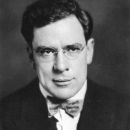
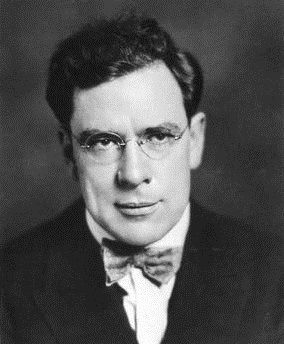
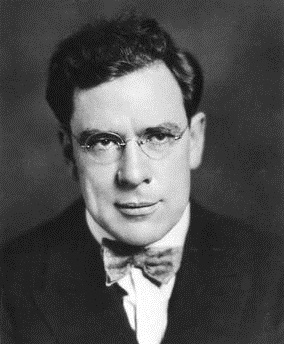
 Amanda S. Stevenson
Amanda S. Stevenson 